Does the GCSE Geography Curriculum need further modernisation?
Guest blogger James Pledger (@JamesPledger) argues the need for further modernisation of the GCSE Geography Curriculum.
Two months ago, I spoke to Mohammed in his small shipping container, a part of the Katsikas refugee camp in Northern Greece. We were chatting about causes of the Syrian civil war that had forced him to flee his home in Homs and make the dangerous trip across the Aegean Sea. Following the conversation, on top of realising how utterly desperate the situation in Syria was, it occurred to me how inextricably linked to ‘geography’ the outbreak and continuation of this war were. From the drought in Syria from 2009-2011 (widely viewed as a result of climate change) that caused high rural-urban migration; to global geopolitics, population increases, globalisation, divides between young and old that manifested in the Arab Spring, as well as the introduction of social media/improved technology, it is clear that there were a huge amount of modern geographical factors at play. This got me thinking, surely it is time to modernise the GCSE curriculum further to reflect more of the issues mentioned here?
This is not to say that there have not been significant improvements in the most recent specifications from all exam boards. The environment generally receives a good deal of attention from the majority of the exam boards; there is always some mention of global ecosystems and the mechanisms of globalisation are also touched on by the three main examining bodies. However, let us go further. There are several changes which seem sensible for the geography curriculum to reflect our world in 2019.
1.) The UN categorises anthropogenic climate change as the ‘defining issue of our time’. Therefore, there should be 2/6 of the geography GCSE curriculum dedicated to it. Also, phrases such as ‘there are a number of possible causes of climate change’ preceding lessons on the natural causes of climate change should be avoided; this surely does not give an accurate impression of the situation to students. It provides the kind of ‘balanced’ argument that Nigel Lawson used to when appearing on BBC Breakfast next to a climate scientist.
2.) ‘Development and progress’ should also make up at least 1/6 of each course, but be taught slightly differently. I would use Hans Rosling’s research from the GapMinder Institute to highlight the extent of human progress over the last 100 years, avoiding the traditional Global North/South fallacy and using case studies such as the Bill and Melinda Gates Foundation, in addition to traditional case studies which generally show LIC countries being exploited by TNCs.
3.) ‘Geopolitics’ should make up 1/6 of each course. This is a topic reflected in university and A-Level Geography courses but completely avoided at GCSE. Is this due to an assumption that the students will not understand, as it is an increasingly important part of geography? In the future, water, food and energy tensions will be played out geopolitically; there seems to be a great chance being missed here to make synoptic links.
4.) Globalisation and technology must be included in the specifications, again making up 1/6 of the course. Social media, automation, anti-biotic immunity, rural-urban migration; almost all of the issues that contributed to the civil war in Syria and Mohammed ending up in Greece should be touched upon within GCSE Geography in my opinion. If we do not as geographers, where else will students be getting this type of information from?
Clearly, all the changes laid out above leave only 1/6 of ‘free’ space to teach anything else! In all the current specifications, there is an adequate section on the biosphere and global ecosystems, which I believe should stay. That means that the specification is full and that in fact, what is being suggested here, is an alternative GCSE curriculum, based on the geographical challenges that will face our students when they leave the classroom.
I know that geography purists won’t like these suggestions. I fully appreciate the value of learning about tectonic plates, earthquakes and volcanoes. I understand how teaching about natural processes like meanders can be interesting and provide local knowledge. I know that the UK has been largely omitted from my suggested specification.
Currently, UK geography makes up a good portion of all the specification content across exam boards, and I know that much of that will be lost. But there is no other subject that is equipped to teach these increasingly important issues. I would argue that an awareness of the impacts of climate change, of the effects of social media on populations and of massively improved global health is much more important to equip our students with than knowledge of meanders or types of erosion. GCSE Geography should look to the future, to plan for the present.
James Pledger
@JamesPledger
What’s your view on the proposal made by James? Feel free to leave a comment below. We’re keen to encourage debate on Internet Geography, just remember to keep it polite!
Internet Geography is offering a platform for guest bloggers for this academic year. Got a teaching strategy, interest or anything geographical you’d like to share? Please contact us. We’re unable to offer a financial award but we’ll send you a little treat in the post.

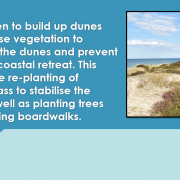

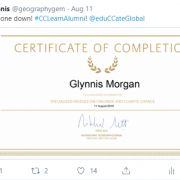
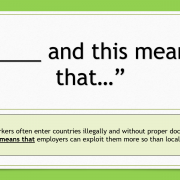
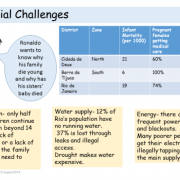
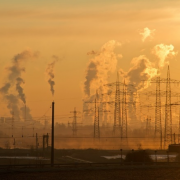


Thanks James. Many interesting points. I don’t agree with everything you say, but you’ve correctly anticipated some of the counter-arguments. With regard to geopolitics, although the EU was an important part of many GCSE Geog legacy specs which finished in 2016, it was significantly downgraded for the current specs. The unfortunate decision to do this was taken around 2014 when Michael Gove was Secretary of State for Education. We might be forgiven for regarding this now with some suspicion!
Yes Brendan, I can find very little evidence of teaching about the EU in any of the specs that I researched. I also think that perhaps the need may be for a new GCSE, as opposed to this total overhaul of the Geog spec, as I don’t know where students will be learning about domestic and foreign politics in the current curriculum!